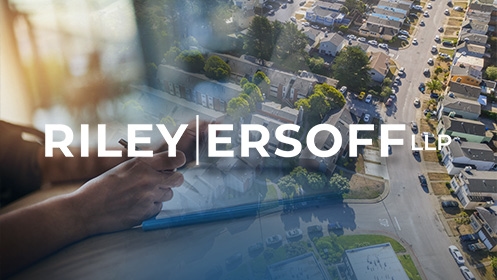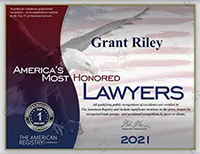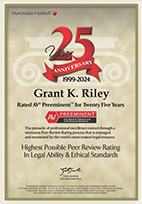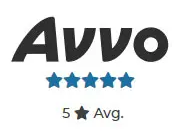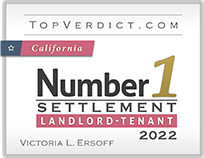Landlord maintenance failures can lead to mold, which is a significant concern for tenants.
California law does its best to protect both landlords and tenants. For example, landlords can evict, retain security deposits or file civil suits in response to substantial damages to their units caused by tenants.
On the other hand, however, landlords must also maintain clean and safe spaces for their tenants. That includes ensuring adequate waterproofing and weather protection of the roof and exterior walls, as well as windows and doors.
All too often, landlords will put off critical repairs and maintenance to save themselves a little money. That can cause a host of issues for tenants, ranging from damages to their property to serious health issues or injuries. Waterproofing, roof repairs and leaks can all be expensive to fix, but failing to do so could end up causing far more damage and cost over time.
Landlord maintenance failures can lead to mold and health issues. If you have had damaged property or health issues due to landlord maintenance failures, you may be entitled to compensation. Contact Riley | Ersoff LLP today at (888) 658-9695 for a free consultation.
Landlord Maintenance Failures can Lead to Mold Growth
For most molds, the perfect conditions are warm, wet and dark. The underside of a roof, the inside of a sink cabinet or building space below ground level can all see rapid mold growth in the right circumstances.
Some molds are worse than others, with black mold, in particular, proving to be hard to eradicate and associated with a host of human health issues.
As soon as you inform your landlord of leaking water from your roof, ceiling, windows, doors or pipes, he or she should take steps to address this issue. Professionals shouldremediate mold as expediently as possible to ensure it does not come back. Failing to do so could result in worse damage over time, as well as the development of a mold issue that leaves you unable to live in the space safely.
Black Mold Poisoning Is a Serious Issue for Tenants
Toxic black mold, also called Stachybotrys chartarum, can quickly build up in your carpets, walls, ceiling or flooring and spread throughout your space. They can then give off spores and mycotoxins that cause serious health issues in humans and house pets.
The most common symptoms of black mold exposure are respiratory. It can cause persistent coughing and sneezing, red, irritated eyes, rashes, fatigue and headaches. Severe cases can cause vomiting and bleeding in the lungs, throat and nose.
A simple leak can soon lead to a home that is no longer inhabitable. Worse, it can result in massive medical bills, especially if there is someone in your home with mold allergies, asthma or a compromised immune system. Children and the elderly are also more vulnerable than healthy adults. If your landlord refused to address a leak leading to mold development, it may be time to consider taking legal action against your landlord.
How Long Does a Landlord Have to Fix a Mold Problem in California?
In California, landlords must legally maintain habitable rental properties. Because the California Housing Code states that dampness or visible mold in a dwelling is a danger to an occupant’s health, its presence may render a property unlivable. However, California laws don’t specifically address a landlord’s duties to prevent or remediate mold other than an appeal to address the problem.
Generally, landlords in California are legally obligated to tackle mold problems promptly and take steps to prevent mold from recurring. Typically, the reasonable period within which a landlord must remediate or address mold issues is 30 days from the day the landlord receives a tenant’s notification. However, the actual period depends on the mold problem’s severity, the mold’s cause, and the contractors’ availability to remediate.
Can I Sue My Landlord for Mold?
The State of California recognizes the dangers of toxic mold. Thus under certain circumstances, California tenants may sue their landlords for mold issues in their rental units. Depending on the facts of your case, you could sue your landlord for costs such as medical expenses, lost income, and any other financial burdens caused by related health issues or having to relocate to escape the mold.
Because moldy rental units can cause grave health issues, they violate California’s implied warranty of habitability. The implied warranty of habitability is present in all residential California leases. It is essentially a landlord’s implied promise that their rental property is clean, safe, and suitable for human habitation throughout the lease’s interval. Based on this implied warranty, when a landlord fails to fix a mold problem after you notify them, or if they fail to address the issue in a reasonable amount of time, you might be able to sue them for the breach.
Knowledge
To sue a landlord, you must prove that they knew or should have known about the mold problem and failed to take reasonable steps to fix it. You may further need to present evidence showing that the mold grew due to a structural issue or other problem that was the landlord’s responsibility to fix.
Common Tenant Strategies
California courts also recognize two other common tenant strategies following a mold outbreak in their rental unit. The first is rent withholding, which is when a tenant stops paying rent because the mold has made their apartment uninhabitable. The second strategy, called ‘repair and deduct,’ involves tenants taking care of the mold cleanup independently and subtracting the remediation cost from their rent. It’s also good to keep in mind that although landlords must keep their rental properties free of mold, they might not be liable if you did something to cause mold growth or if the landlord was unaware of its presence.
Suing a landlord can be a complex and laborious process. Before deciding on the best course of action, it is best to speak with an attorney who understands landlord-tenant law.
A skilled slum housing attorney can walk you through your rights, assist you in filing a complaint xwith local housing authorities, and help you seek the remedies you are entitled to under California law.
Act Now – Contact a Lawyer Experienced in Mold Cases
If you have been a victim of landlord maintenance failures, you need to contact the slum housing lawyers at Riley | Ersoff LLP. Contact us online or call us today for a free consultation.
The post Landlord Maintenance Failures Can Lead to Mold appeared first on Riley | Ersoff LLP.

